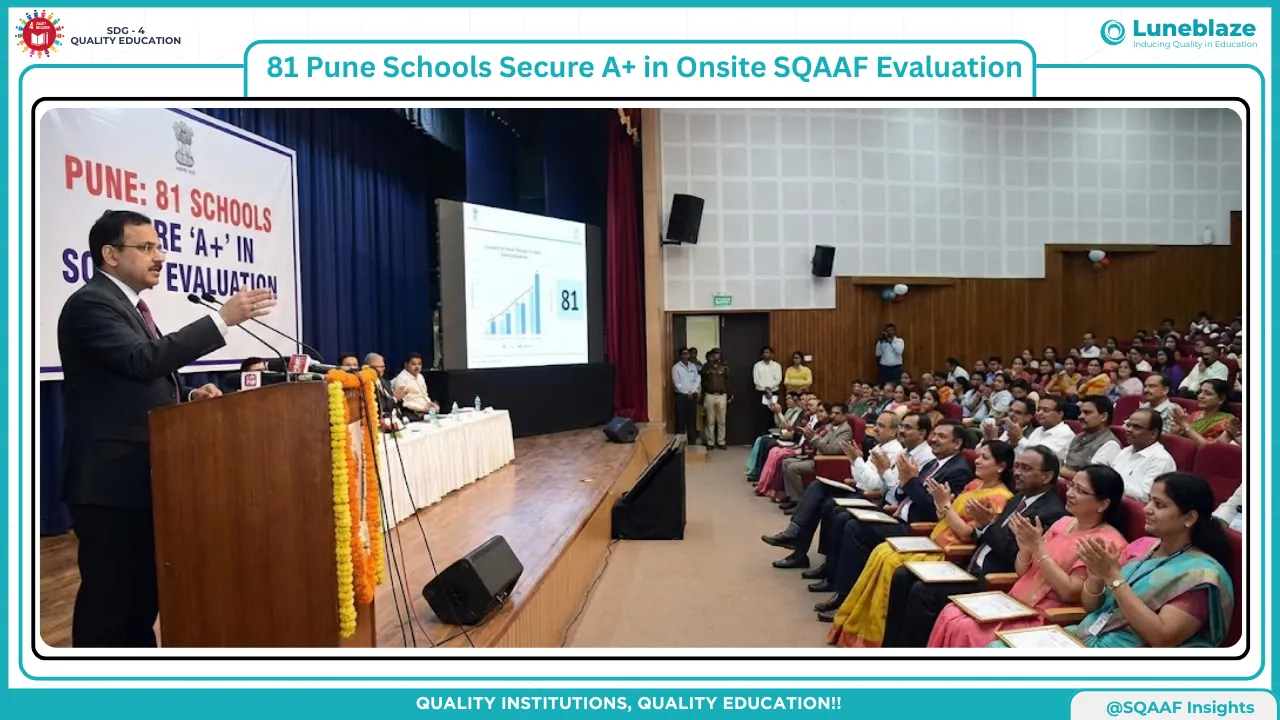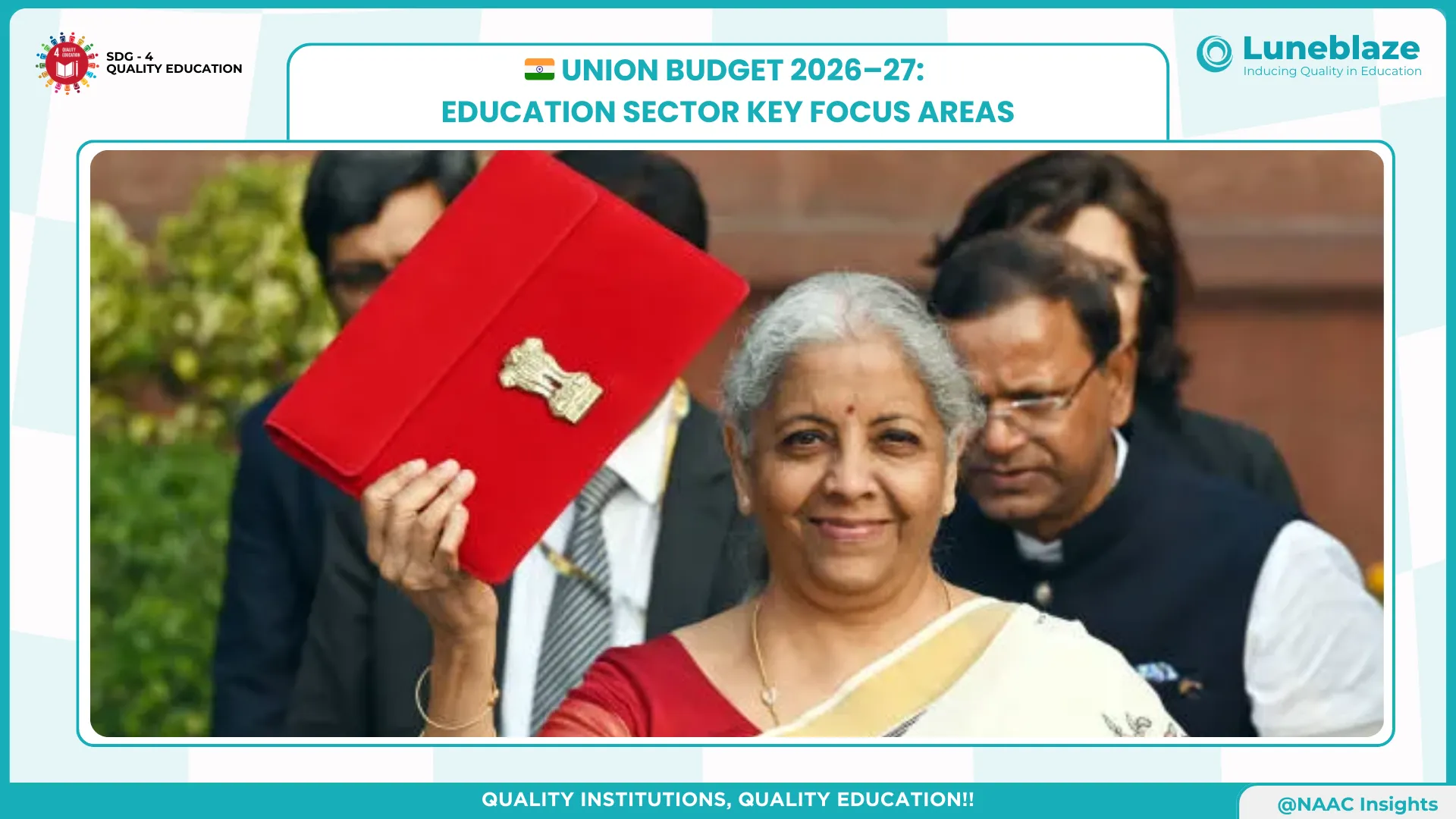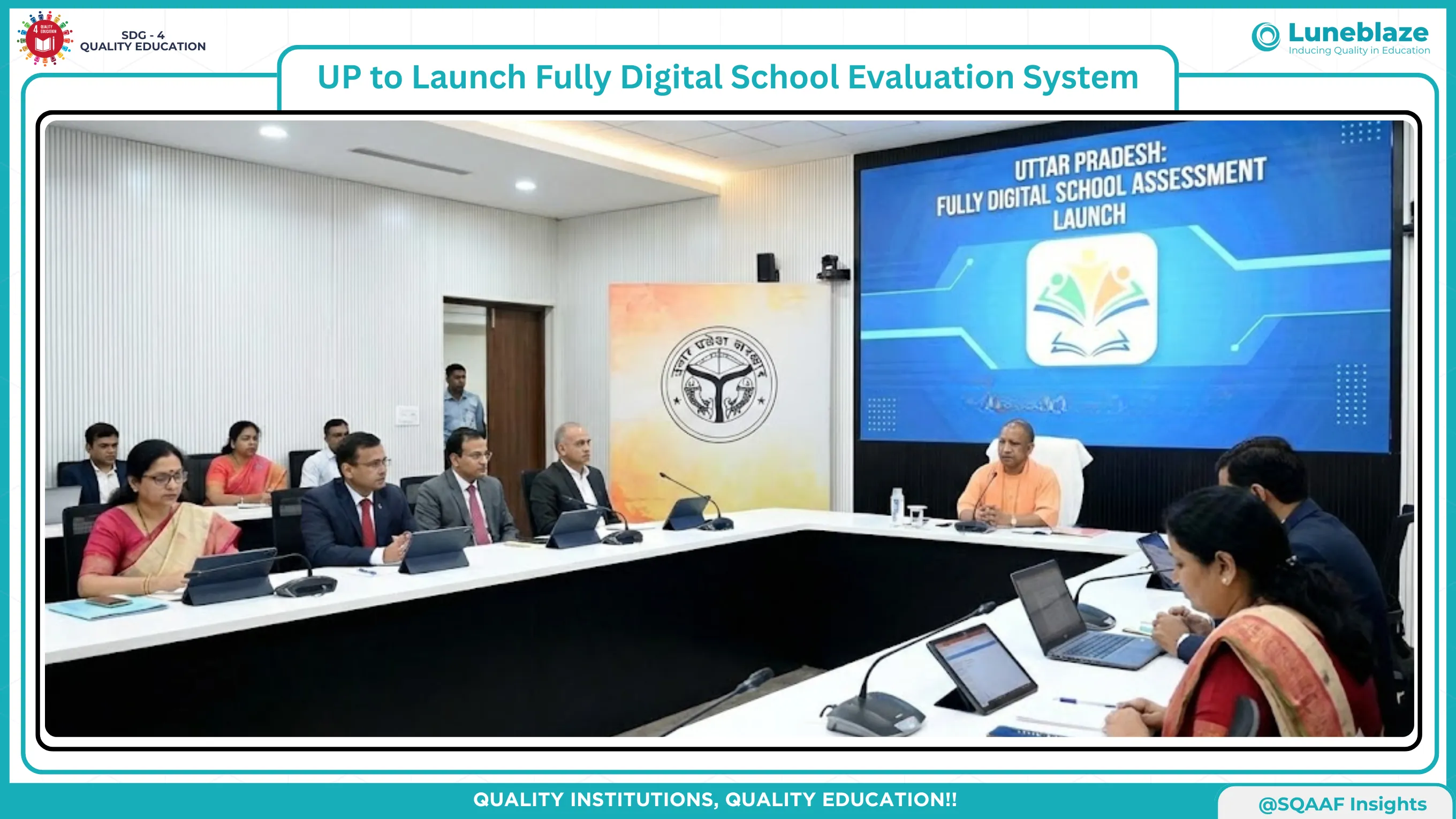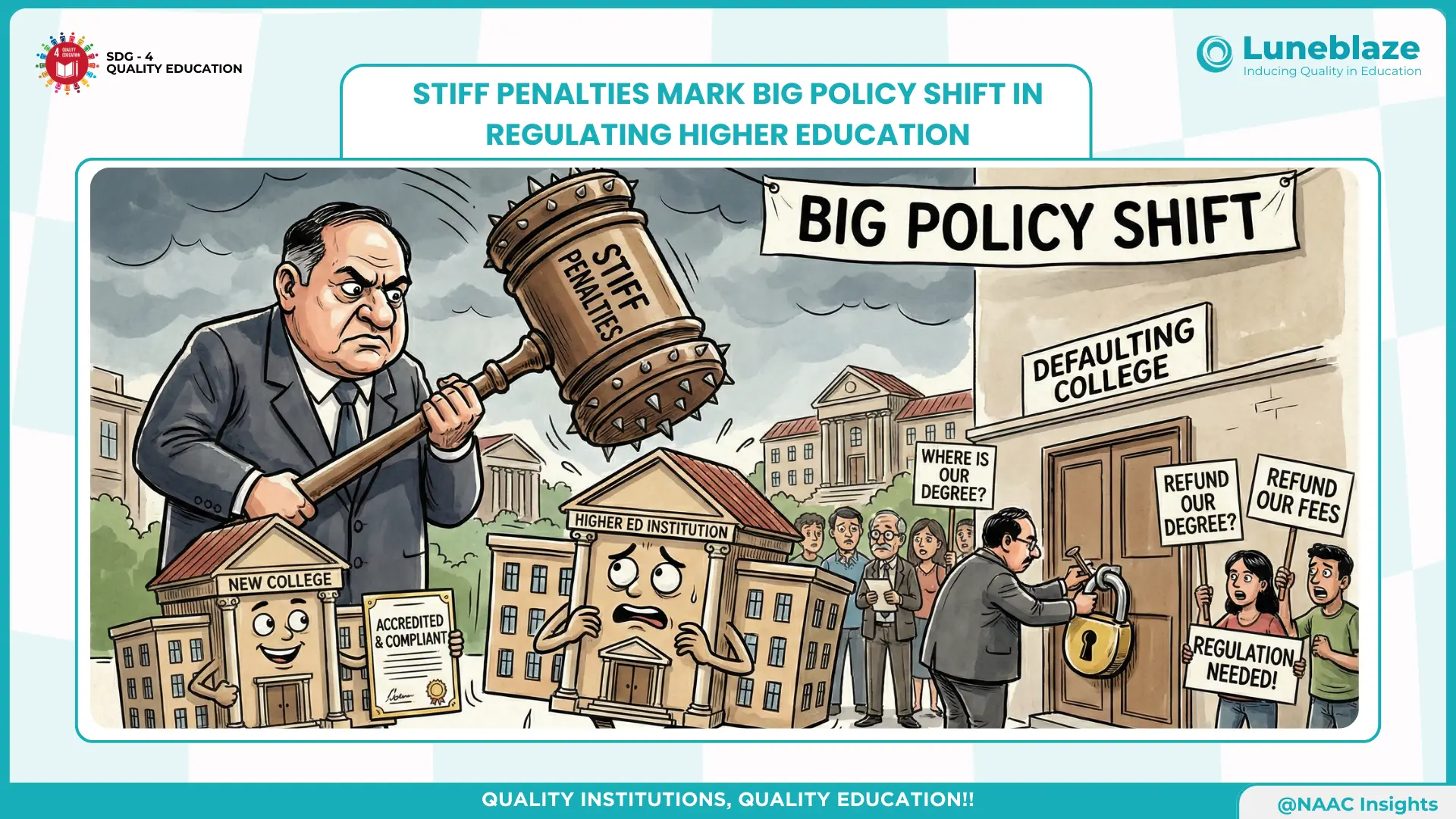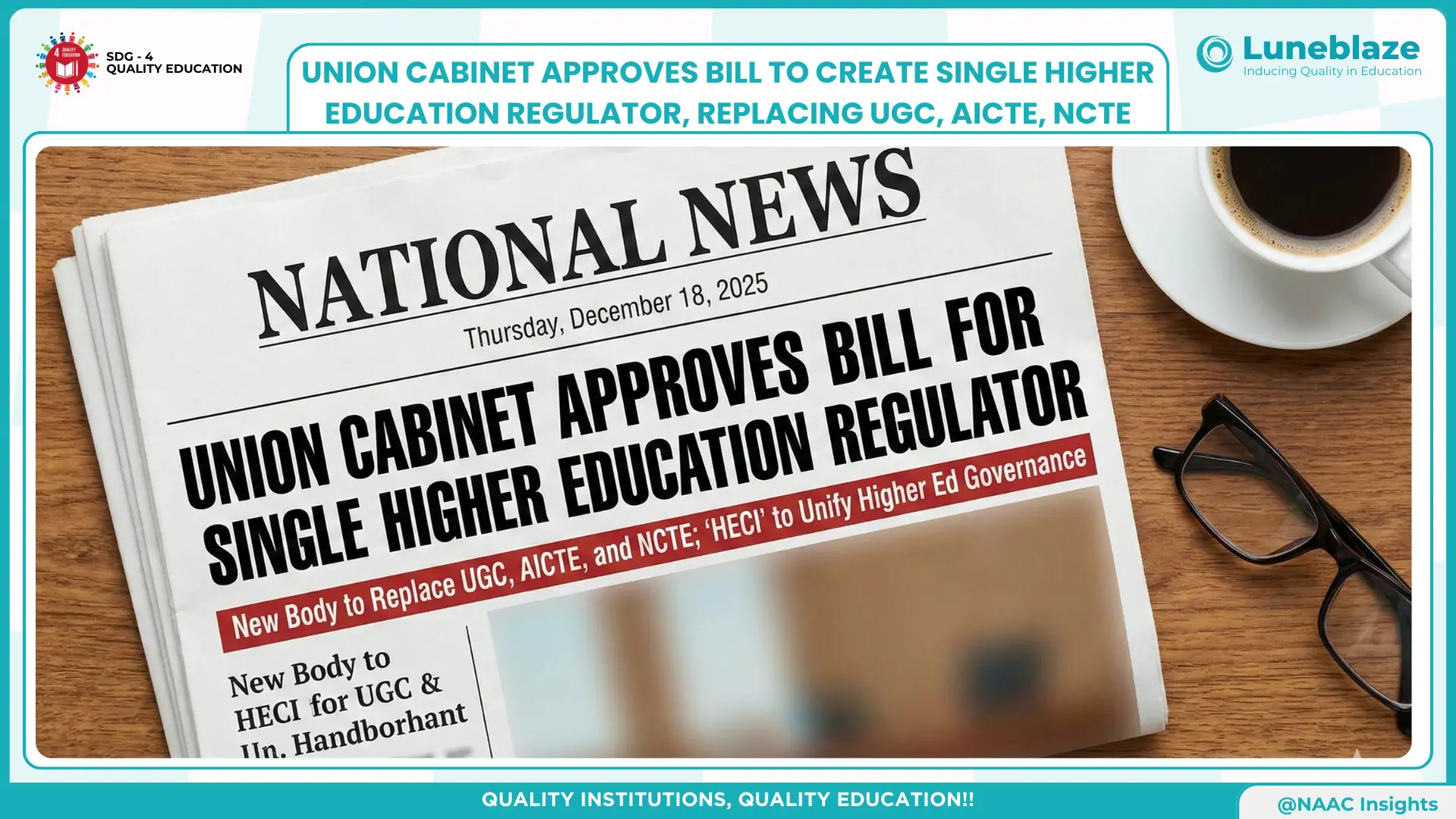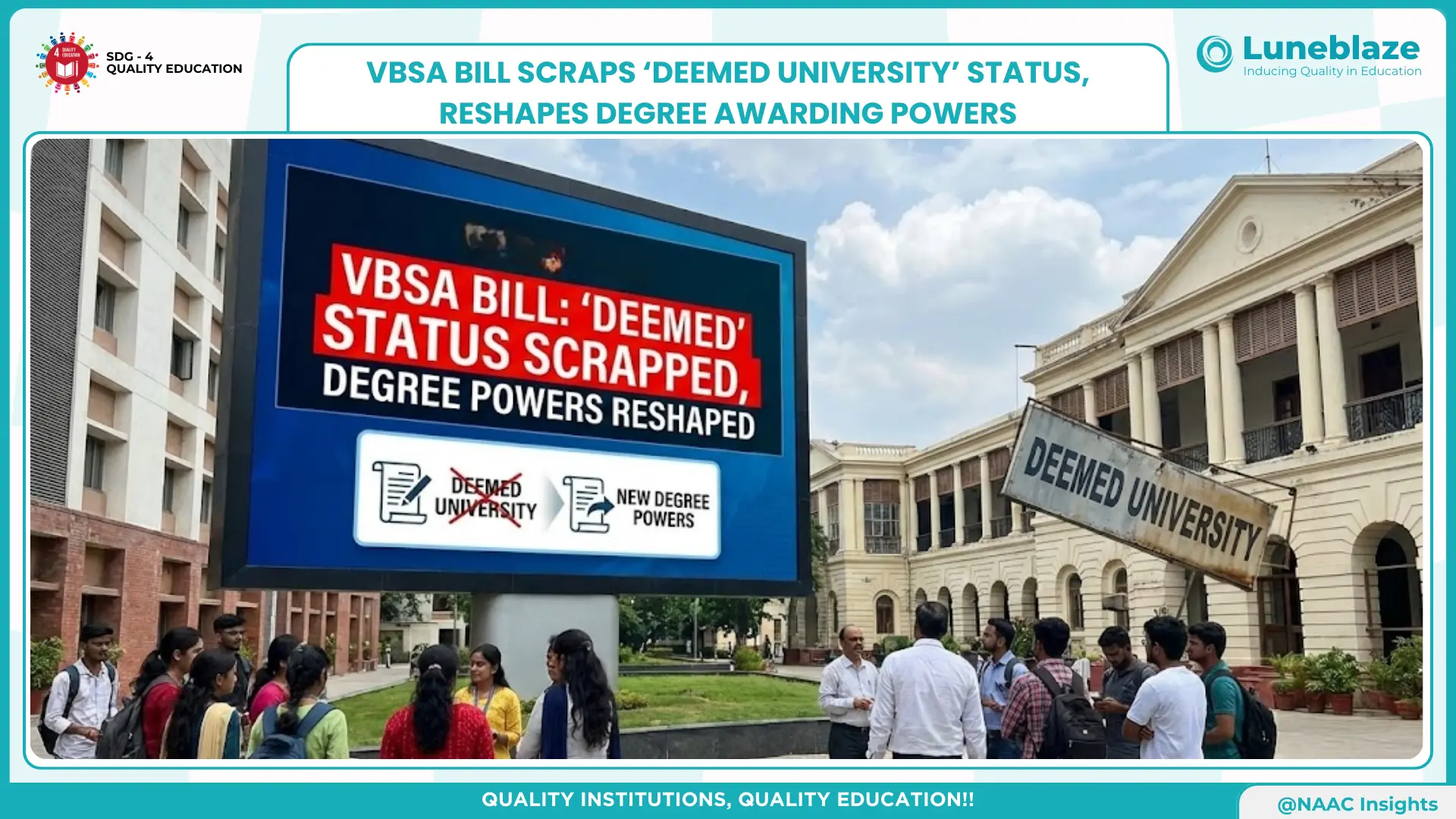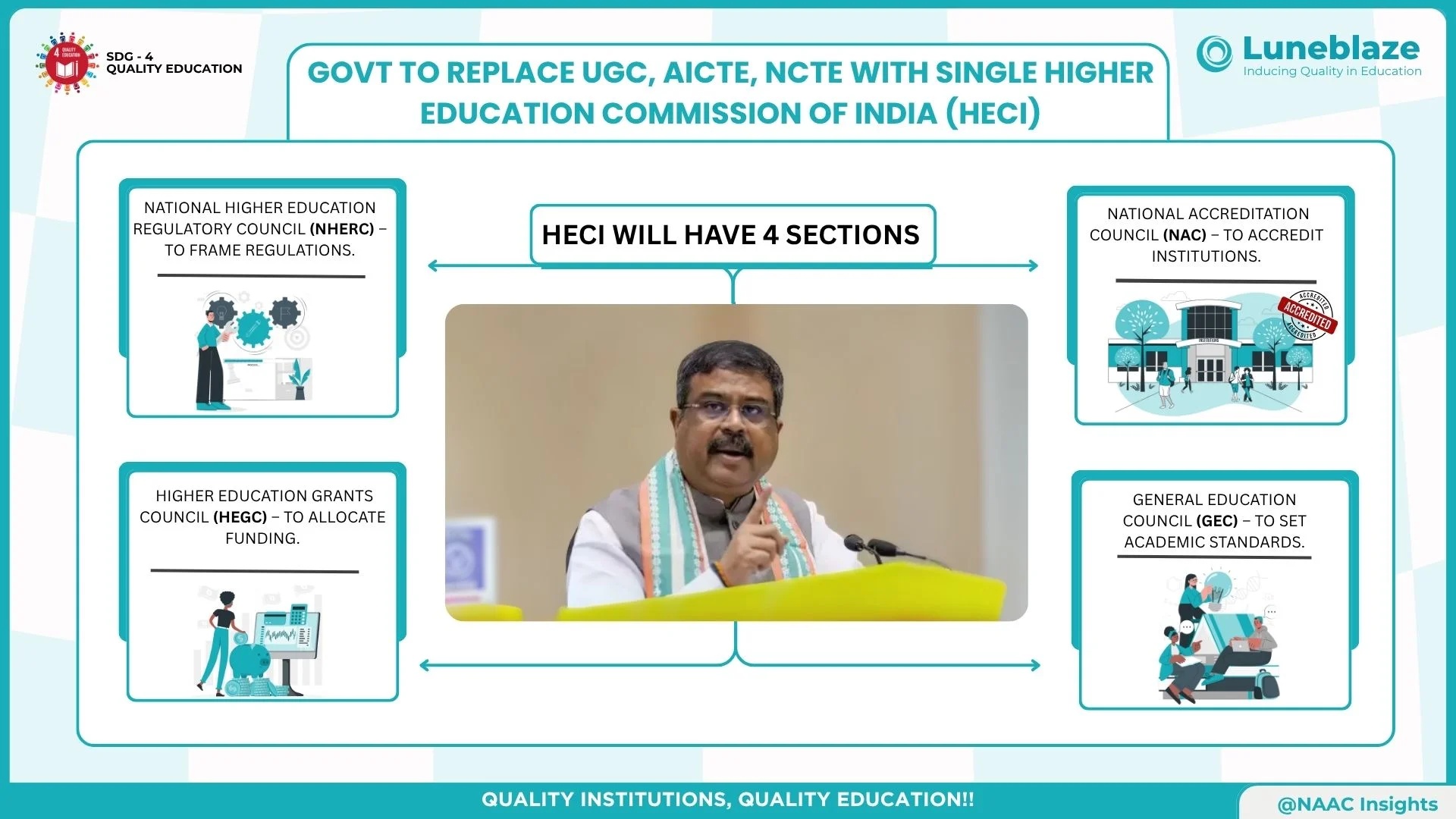Fake Research, Real Consequences: NAAC Launches Penalty System for Academic Malpractice
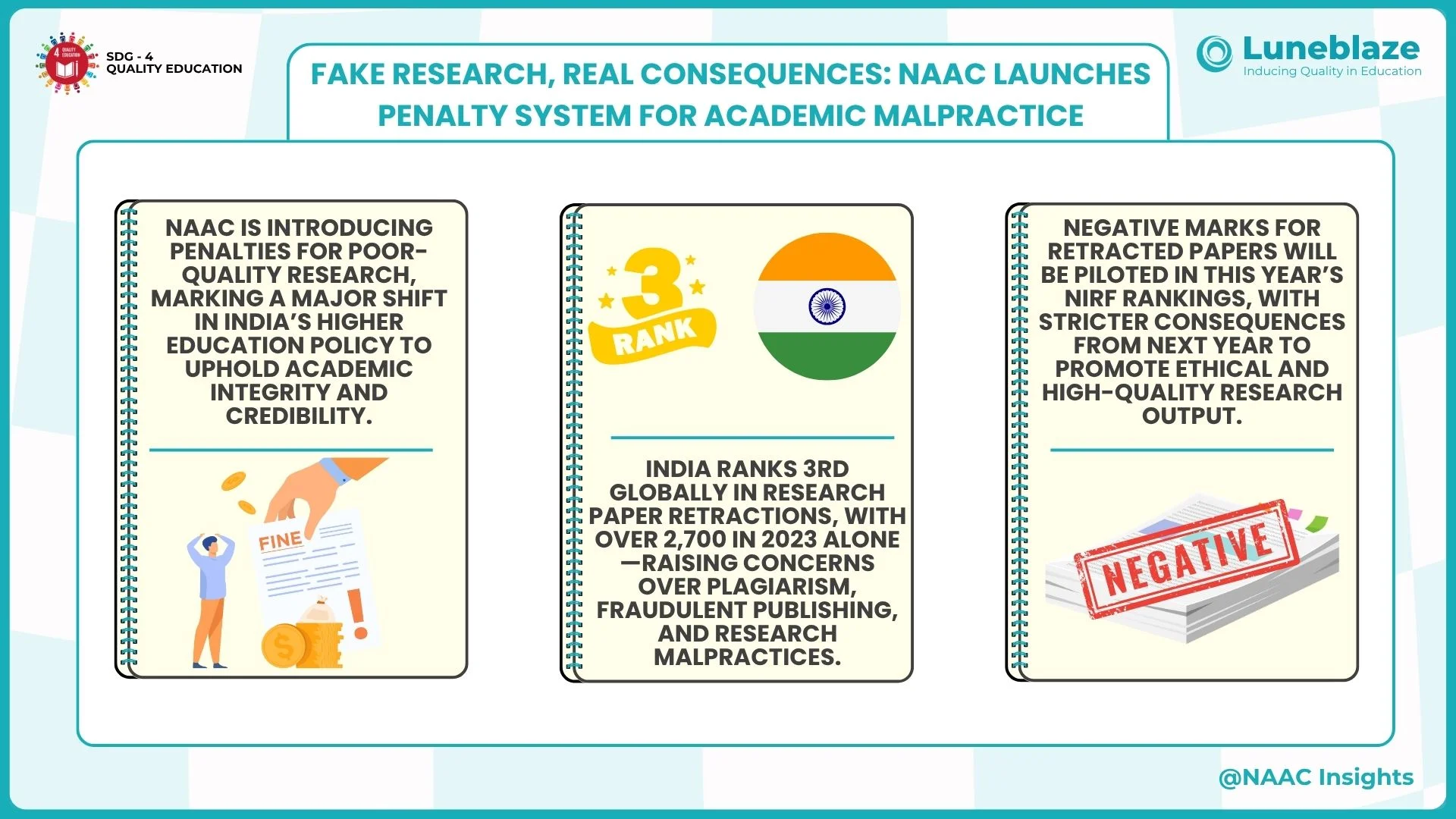
Jul 18, 2025
In a bold step to restore academic credibility and research integrity, the National Assessment and Accreditation Council (NAAC) will now assign negative marks to higher education institutions whose research papers are retracted due to plagiarism, fraud, or other ethical violations.
This move—announced by NAAC Executive Committee Chairperson Prof. Anil Sahasrabudhe at the Vice-Chancellors’ Conference in Kevadia—marks a major policy shift in India’s higher education landscape. The penalty will be piloted in this year’s National Institutional Ranking Framework (NIRF) and is expected to become stricter in the coming years.
India currently ranks third globally in the number of research paper retractions, behind only China and the United States. With over 2,700 retractions reported in 2023 alone, the crisis has drawn international attention and exposed weaknesses in academic governance across Indian institutions.
The issue stems from a combination of academic misconduct, publication pressure, and fraudulent papermills—making it clear that quantity has often outweighed quality in research evaluation.
For years, national rankings like NIRF, QS, and Times Higher Education have overlooked retractions in their scoring methodology. This has allowed several institutes with dubious publication records to rise in rank. A Public Interest Litigation filed before the Madras High Court earlier this year also questioned the lack of transparency and verification in ranking mechanisms.
Now, NAAC is aiming to correct the course.
“Unless we give negative marks, people will not correct it,” Prof. Sahasrabudhe said. “Institutes with a high number of retractions must face the consequences. We cannot compromise on the quality of research coming from India.”
Initially, the penalties will be symbolic to allow institutions to adjust, but from next year, they will carry real consequences that could significantly impact an institute’s ranking and accreditation status.
Experts have long advocated for this move. “This was long overdue,” said Prof. V. Ramgopal Rao, former Director of IIT Delhi. “Retractions must be penalized. The ranking frameworks must reward research integrity—not just research volume.”
Academic watchdogs like India Research Watch have also called for NAAC to use comprehensive, verifiable databases to track retractions and ensure fair implementation.
As India moves to position itself as a global knowledge leader, this policy sends a strong message: academic excellence cannot be achieved without ethical foundations.
Stay tuned for more updates on India’s evolving research and accreditation ecosystem.
Source: [ThePrint]
Source: theprint.in
Trusted by
100+
Institutions
worldwide
since 2017
Get started with Accreditation Excellence
Explore how our AI-enabled accreditation solution simplifies the accreditation journey

